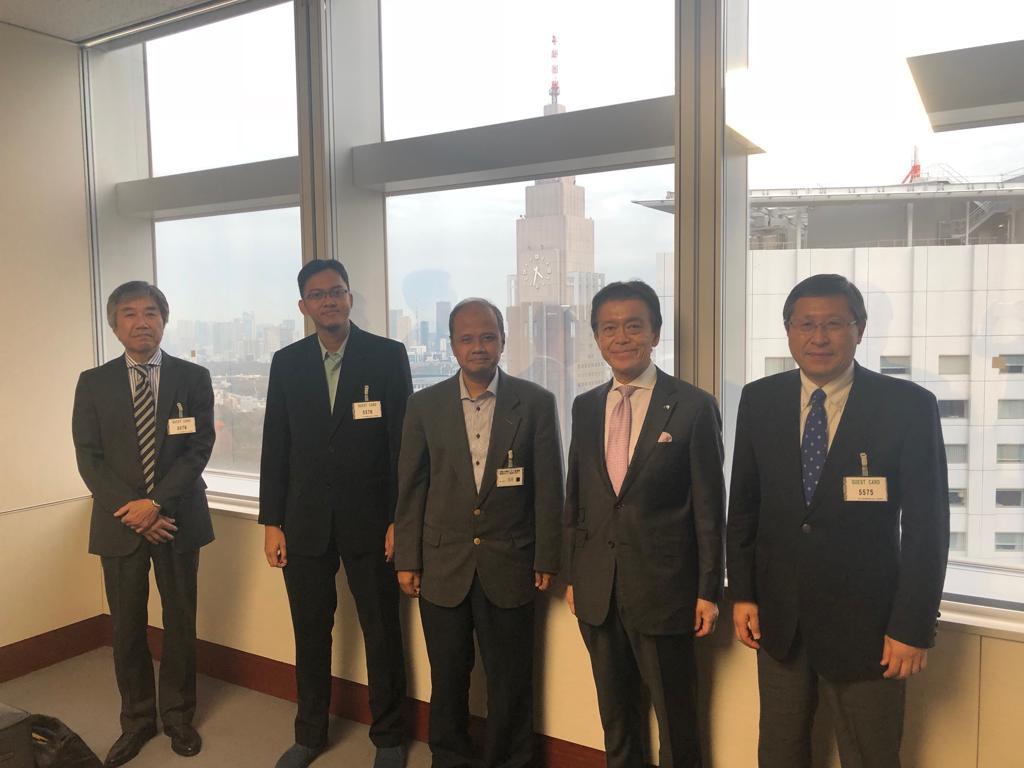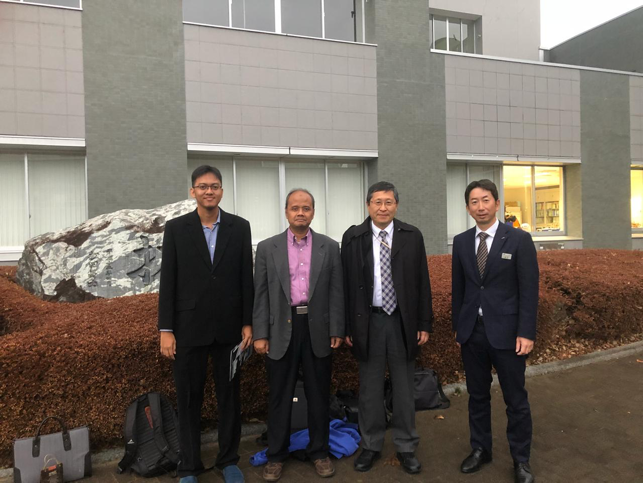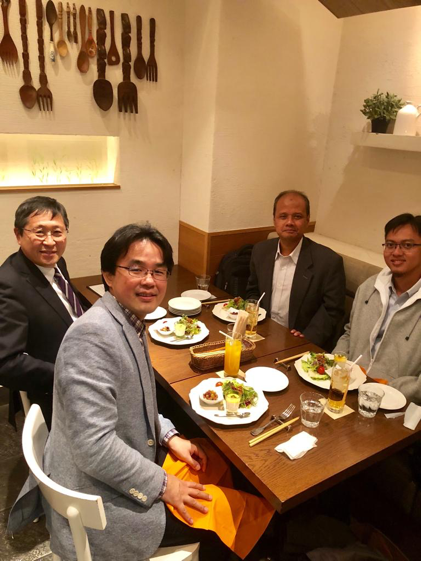NCSTT to Expand the Partnership with JR East and Tokyo Tech
Tokyo, (DN),– Japan is one of the distinguished countries for its rapid and progressive development, especially on its transportation system, be it on the transportation technology, the policy-making and regulation development, also the people’s supportive behavior. Indonesia, which is known as the populous country is currently requiring the well-established mass transportation system to accommodate the needs of its 200 million citizens. Japan’s successful implementation of its transportation system is the great success story for Indonesia to adapt on.
In February 19 – 22, 2019, Dr. Sigit P. Santosa (NCSTT Director) and Dr. Bentang A. Budiman (NCSTT Partnership Manager) have visited several prominent institutions in Japan to solidify the collaborative research on the transportation system. This visit also aims to expand the strong collaboration between NCSTT and Japan through Tokyo Institute of Technology (Tokyo Tech) since 2017.
Initiation of the Partnership with Prominent Japan Railway Industry

Photo session after discussion meeting with Masaki Ogata, Vice President of JR East (second from right)
Japan Railway East Corporation (JR East), is one of the biggest companies that operates and maintains railway in Kanto, Koshinetsu, and Tohoku regions, including Shinkansen bullet train. The focus of collaboration with JR East is to leverage the education and technical skill of human resources of mass transport in Indonesia, which is one of four NCSTT main focus. JR East recorded as the most successful company that can manage and operate many lines in Japan, in contrary with the nature of many mass transport companies that usually have heavy losses without subsidized by the government. The NCSTT wants to adopt the JR East experience to be implemented in the Indonesian mass transport system.
To fulfill the NCSTT goals, Dr. Sigit and Dr. Bentang made a visit to JR East General Education Center. The education center has many supporting facilities i.e. dormitory, technical laboratories (signaling and safety), train simulation facilities, train test track facilities, train accident museum, and lecture rooms. The tremendous facilities were built to educate train drivers, technicians, and train servants. The center can accommodate up to 1200 employers. Furthermore, JR East is planning to expand the facilities to accommodate international employees. On this site visit, Dr. Sigit also introduced the NCSTT goals and objectives to JR East representatives, and his expectation to build a strong collaboration with JR East.

NCSTT researchers (Dr. Sigit and Dr. Bentang) with Prof. Kishimoto (Tokyo Tech) and Mr. Yusuke Kurabe (manager of Personnel department) in front of JR East General Education Center
After visiting JR East General Education Center, Dr. Sigit and Dr. Bentang were invited to meet vice-president of JR East, Mr. Masaki Ogata at the head office near Shinjuku station. NCSTT and JR East would like to start the collaboration by considering the previous good relationship between JR East and PT KAI, as the operating mass transport state-owned company in Indonesia. For several years, JR East has exported a train as the grant to PT KAI to improve the passenger comfort in the commuter line. The current expanding collaboration between NCSTT and JR East will be related to human resource development. JR East will support NCSTT to develop the curriculum on railway technology, so the graduate students with the program in transportation, policy, planning and TOD, maintenance, service, reliability, and railway safety will be involved. JR East also agree to conduct collaboration in region development near the station to increase the profit of operating mass transport in Indonesia.
The Continuous Expansion of Collaborative Research with Tokyo Tech
Beside the meeting agenda with JR East, Dr. Sigit and Dr. Bentang also visited Tokyo Tech for several agenda. NCSTT will expand collaborative research with the Transport Studies Unit (TSU) Tokyo Tech. TSU consists of many study group which conducts a wide range of aspects of transport studies, such as traffic engineering, transport planning, behavioral sciences, and urban studies.

Dinner time after exploring topics for research collaboration between NCSTT and Tokyo Tech
NCSTT is initiating the collaborative research on transport modeling and demand projection, big data analysis on passenger behavior, transport mapping, transport safety and crash avoidance, infrastructure development for supporting TOD. This research will involve six laboratories on TSU: Fukuda Lab, Asakura Lab, Muromachi Lab, Yai Lab, Hanaoka Lab, and Inaba Lab. Inaba laboratory will accept several undergraduate and graduate students from NCSTT to conduct research. The topic will cover mechanical engineering in transportation and will be discussed together with the supervisor in Indonesia. The output will be joint publications.
The simultaneous collaboration with prominent industry and higher education institution is expected to build the synchronous progress between research development and the readiness of the related industry to implement the technology.***
